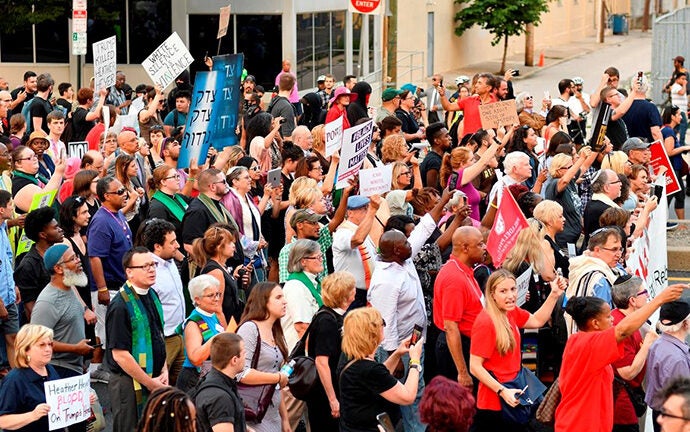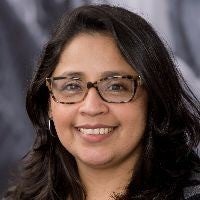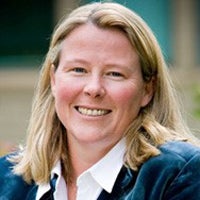
How do we counter antisemitic and racist movements?
As the United Nations warns the United States over “alarming racism,” urging the nation to “unequivocally and unconditionally” reject discrimination in the wake of the recent white supremacist, neo-Nazi rally in Charlottesville, Va., the question on everybody’s lips is, “Where do we go from here?”
Housed in USC Dornsife, the USC Shoah Foundation – The Institute for Visual History and Education preserves 55,000 testimonies of survivors and witnesses to the Holocaust and other genocides, providing a compelling voice for education and action. In this article, its scholars offer insights into the current climate and explore meaningful solutions.
History serves as a warning

“We are witnessing a marriage wherein Nazi ideology and white supremacy join together to draw from the dark historical legacies of the Holocaust and slavery and to espouse their racism and antisemitism in broad daylight. This confluence of hateful ideas is a powder keg that must be defused. This is not about party politics but about the values of our country. We have 55,000 people who have testified about the short fuse from hatred to genocide. It’s time to listen to them.”
Steven D. Smith
UNESCO Chair on Genocide Education, Andrew J. and Erna Finci Viterbi Executive Director Chair at the USC Shoah Foundation – The Institute for Visual History and Education, and adjunct professor of religion.
Connecting the past to the present

“We need only look to history to see where white supremacist, neo-Nazi rallies like the ones in Charlottesville last weekend can lead. When such violent displays of radical racism, antisemitism and bigotry are not clearly condemned by the president and the government, it brings a country one step closer toward state-level acceptance of racial discrimination, which can end in persecution and genocide. If we are to prevent another catastrophic event like the Holocaust, it is imperative that we recognize the warning signs and resist these would-be perpetrators with all available means that are at the disposal of the state and the civil society.”
Wolf Gruner
Shapell-Guerin Chair in Jewish Studies and professor of history and director of the Center for Advanced Genocide Research.
Teach lessons of history to the younger generation

“We cannot expect our students to learn the lessons of history or be responsible participants in civil society if we do not adequately prepare our educators to effectively teach these critical topics in the classroom. Now more than ever, teachers need comprehensive educational resources that will inform, engage and inspire the next generation to actively reject hatred in all its forms.”
Claudia Ramirez Wiedeman
Associate director of educational technologies and training at the USC Shoah Foundation – The Institute for Visual History and Education.
Resisting intolerance starts in the classroom

“The solutions to many of society’s problems can start to be developed in the classroom. It is imperative that we arm our young people with the skills, knowledge and dispositions to resist the kind of bigotry we see all around us today. We can do that with thoughtful, evidence-based, theoretically sound educational resources.”
Kori Street
Senior director of programs and operations at the USC Shoah Foundation – The Institute for Visual History and Education.
Empower people to speak against bigotry

“In the wake of the horrific events in Charlottesville, students of all ages have spoken out, declaring that the hatred spewed by a small group of bigots, neo-Nazis, and white supremacist extremists does not represent them or their generation’s values. As they pursue their education and prepare to take their place as the next generation of leaders, we must empower them to stand up for their beliefs, inspire their peers to take action and effect meaningful change in the world.”
Sara Brown
Postdoctoral teaching fellow at the USC Shoah Foundation – The Institute for Visual History and Education.